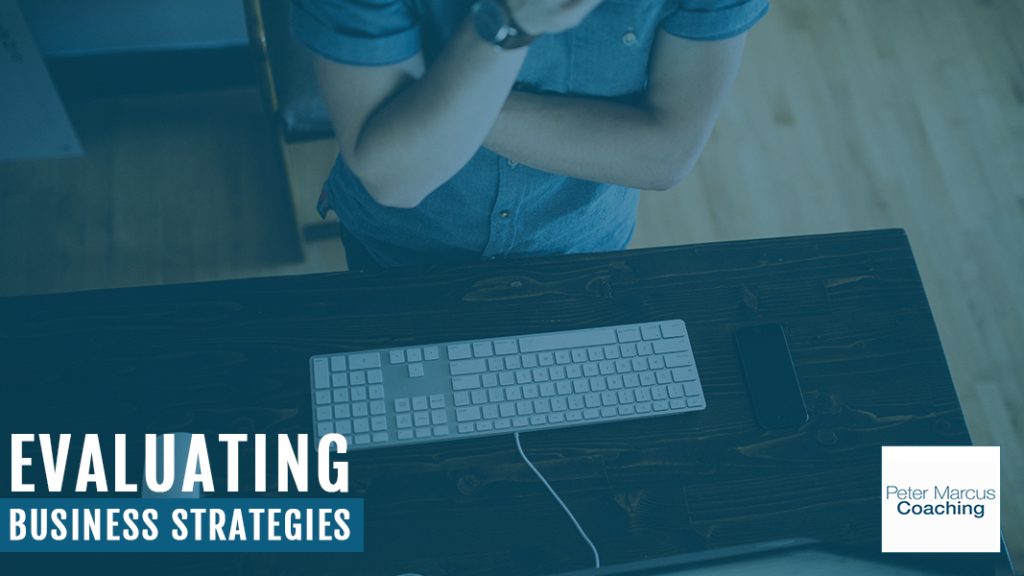Evaluating Business Strategies

Leadership is a lot more than a high-ranking title and being in charge of decision making. You have the authority to tell people what to do, but if you are not a good leader, you will not be able to guide your staff to obtain results.
In this article we will discuss how effectively evaluating business strategies helps you be an effective leader, and what tools are available to the business executives which can be utilized to make their business more effective.
The leader provides character, visibility, and style for the organization. Their role is to guide, motivate, and at times go against the majority to turn things around. The leader shows the direction everyone has to follow to reach the goals to be a more profitable business. Being a leader requires hard work and determination.
Leadership and Its Impact on Culture
Leaders bring forward the culture of a business. It is vital to build a strong culture in your business, so employees feel they are a part of a strong team. In a business with a good leader and a strong culture, there is not only accountability but also reward for exceptional performances.
As an executive, you set the company’s culture. You can evaluate the success of any business strategy by looking at the culture, because culture is the true representation of all the strategies and plans of the firm.
Role of Leadership in Evaluating Business Strategy
As a leader, it is your role to lead your company towards progress. You have put in the best business strategies in place after consulting your team, but how will you assess that the policies are applied successfully?
Leadership is a tool which is often ignored during the evaluation process. By obtaining feedback from both inside and outside your company, you can gain invaluable insight to identify gaps in your business strategies.
By seeking feedback, you can identify your resources and areas for growth and utilize this information to achieve projected growth and objectives. It will also help to highlight any weaknesses in your leadership style.
You gain not only clarity in setting your business direction by evaluating business strategies, but you also improve your decision making. Your leadership skills are enhanced as you gain invaluable insights into the company’s culture and people, and you become more focused and confident as a leader.
Team’s Behavior in Evaluating Business Strategies
The success of any business doesn’t come down to the leader only — the team members participate as well. As a leader, you strive to foster an environment of trust where all employees get a fair chance to contribute. In such an environment, strategy evaluation becomes a team effort.
As a team, you can get a complete picture of the effectiveness of your business strategies by asking questions such as:
- Are we delivering our best?
- Are we utilizing all our resources optimally?
- Is there anything more we can do?
- Are we growing as a company? What other areas have the potential for more growth?
- Are we checking and charting the course for our team to navigate?
- Are we moving towards our objectives? Are we making the best of these objectives?
Evaluating the Business Objectives
The best evaluation process for any business not only checks its strategies but also focuses on analyzing the employee behavior and performance.
Introducing a proper evaluation process will not only identify disparities in the business strategies, but will also help in setting a direction for the firm. A clear direction is critical for any business, and this evaluation process provides a framework that everyone can adhere to. It can also highlight if a course correction is necessary.
Evaluating business objectives can provide insight to the following questions:
- Where are the gaps or blind spots in the business?
- Is the correct course of action being followed or is a change of direction required?
- Is the business achieving all the milestones efficiently and on time?
- Is the business balanced and are the new/existing strategies having a positive impact?
- Are your employees as happy and productive as your competitors’?
These are just a few of the questions which will arise when evaluating your business objectives.
Using Evaluation to Move Forward
The biggest challenge a business executive faces is to lead by example. You as an executive may choose to keep working on your leadership skills because only you can bring balance to the whole company.
You need to learn and grow as a person and as a leader so that the example you set is followed by your employees. They, in turn, will strive to achieve higher performance levels.
It is vital to ensure your business evaluation process is providing you with ongoing feedback, so you can continually gain insight. You may use those suggestions to devise an effective course of action in which everyone is contributing and growing together. In this way, you will lead a team of happier, productive employees who think of the business as their own and work for the best for it.

